Join us for a day of presentations where members from industry and academia share their knowledge and experiences, including a poster presentation session for students to explain the potential industrial impact of their work.
Guests include:
- Dr. Pratish Gawand
Co-founder, CEO, Ardra Bio Inc. - Dr. Yaldah Azimi
Water Design Specialist, CH2M-Jacobs - Dr. Scott Genin
Head of Materials Discovery, OTI Lumionics
Lunch provided.
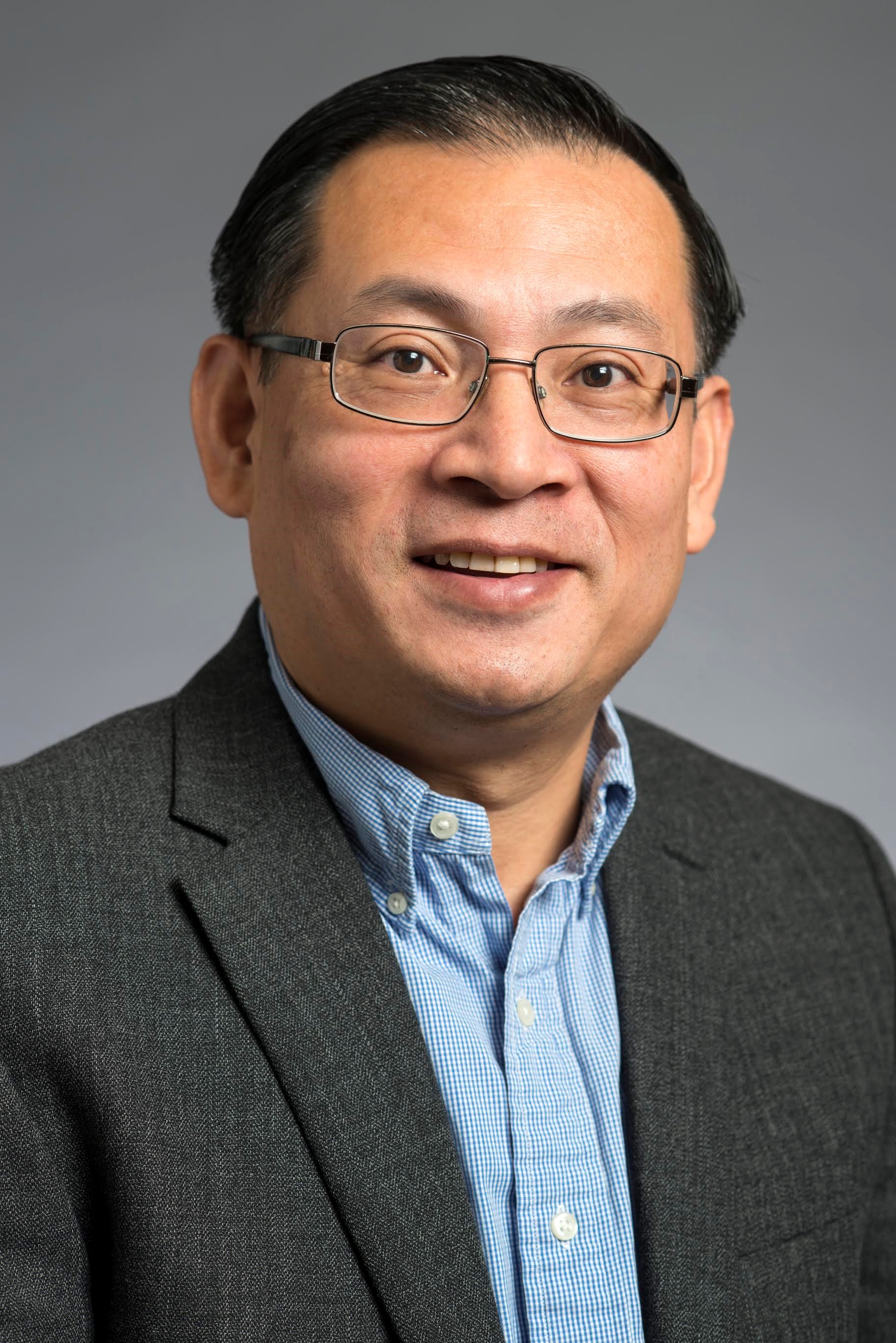 Dr. Shaoyi Jiang
Dr. Shaoyi Jiang
Department of Chemical Engineering,
University of Washington
An important challenge in many applications, ranging from drug delivery carriers to medical devices, is the prevention of nonspecific protein adsorption on surfaces. To address this challenge, our goals are twofold. First, we strive to provide a fundamental understanding of nonfouling mechanisms at the molecular level. Second, we aim to develop biocompatible and environmentally benign ultra low fouling materials based on the molecular principles we have learned. Over the last 15 years, we have demonstrated that zwitterionic and mixed charge materials and surfaces are highly resistant to nonspecific protein adsorption, cell adhesion and bacteria adhesion/biofilm formation from complex media. Both simulation and experimental results indicate that the strong hydration of zwitterionic materials is responsible for their excellent nonfouling properties. Recent results show that zwitterionic materials do not induce immunological response in blood circulation and capsule formation upon implantation and are able to preserve protein and cell bioactivity. Zwitterionic materials have been shown to be superior to poly(ethylene glycol) (PEG)-based materials for a number of biomedical and engineering applications such as drug delivery carriers, medical devices, cell preservation/expansion media, and marine coatings.
____________________________________________________
Professor Shaoyi Jiang received his Ph.D. degree in chemical engineering from Cornell University in 1993. He was a postdoctoral fellow at the University of California, Berkeley between 1993 and 1994 and a research fellow at California Institute of Technology between 1994 and 1996 both in chemistry. He is currently the Boeing-Roundhill Professor in the Department of Chemical Engineering and an adjunct professor of Bioengineering at the University of Washington, Seattle. He was a visiting professor in the Department of Chemical Engineering at MIT with Prof. Robert Langer in 2007. He is a senior editor for Langmuir, a fellow of the American Institute of Chemical Engineers (AIChE), a fellow of the American Institute for Medical and Biological Engineering (AIMBE) and a member of Washington Academy of Sciences. He received the Braskem Award for Excellence in Materials Engineering and Science, AIChE (2017). His research focuses on the molecular understanding, design and development of zwitterionic-based functional materials for biomedical and engineering applications.
Hosted by Dr. Molly Shoichet
Snacks and Refreshments will be served
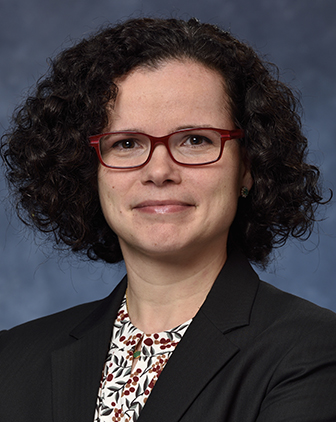 Dr. Carla Ng
Dr. Carla Ng
Departments of Civil & Environmental Engineering, & Chemical & Petroleum Engineering
UNIVERSITY OF PITTSBURGH
Per and polyfluorinated alkyl substances (PFAS) comprise a large group of industrial chemicals that have become pervasive environmental contaminants. Among them, long-chain perfluorinated alkyl acids are now recognized as extremely persistent, bioavailable, and bioaccumulative substances. Growing concern regarding their toxicological effects has led to (largely voluntary) phaseouts in the US and Europe. Short-chain acids were suggested as immediate drop-in replacements because they do not bioaccumulate and are therefore considered less toxic. Yet emerging data on the potential toxicity of even very low levels of certain PFAS is driving regional “action levels” in drinking water in the part per trillion range.
At the same time, a wide variety of “alternative PFAS” have increased production to fill market demand. Thousands of different PFAS, with a variety of chain lengths, degrees of fluorination, and functional groups are now used in industries ranging from fire fighting to industrial processing to personal care products to food packaging. Very little is known about the bioaccumulation potential and toxic effects of these replacement compounds.
In this seminar, we will explore why current risk assessment paradigms and water treatment approaches fail to adequately capture or mitigate the risks posed by PFAS and discuss strategies for addressing this pressing global contamination problem.
_________________________________________
Dr. Carla Ng is an Assistant Professor in Civil and Environmental Engineering at the University of Pittsburgh, with a secondary appointment in Chemical & Petroleum Engineering. She received her PhD in Chemical & Biological Engineering from Northwestern University in 2008. The research in Dr. Ng’s group focuses on the development of models for the fate of chemicals in organisms and ecosystems, at the intersection of chemistry, biology and engineering. Active research areas include the development of mechanistic models for the bioaccumulation of emerging contaminants in organisms, tracking the fate of legacy and current-use pesticides in tropical environments, and exploring the role of the industrial food system on the fate of environmental contaminants, with implications for human exposure.
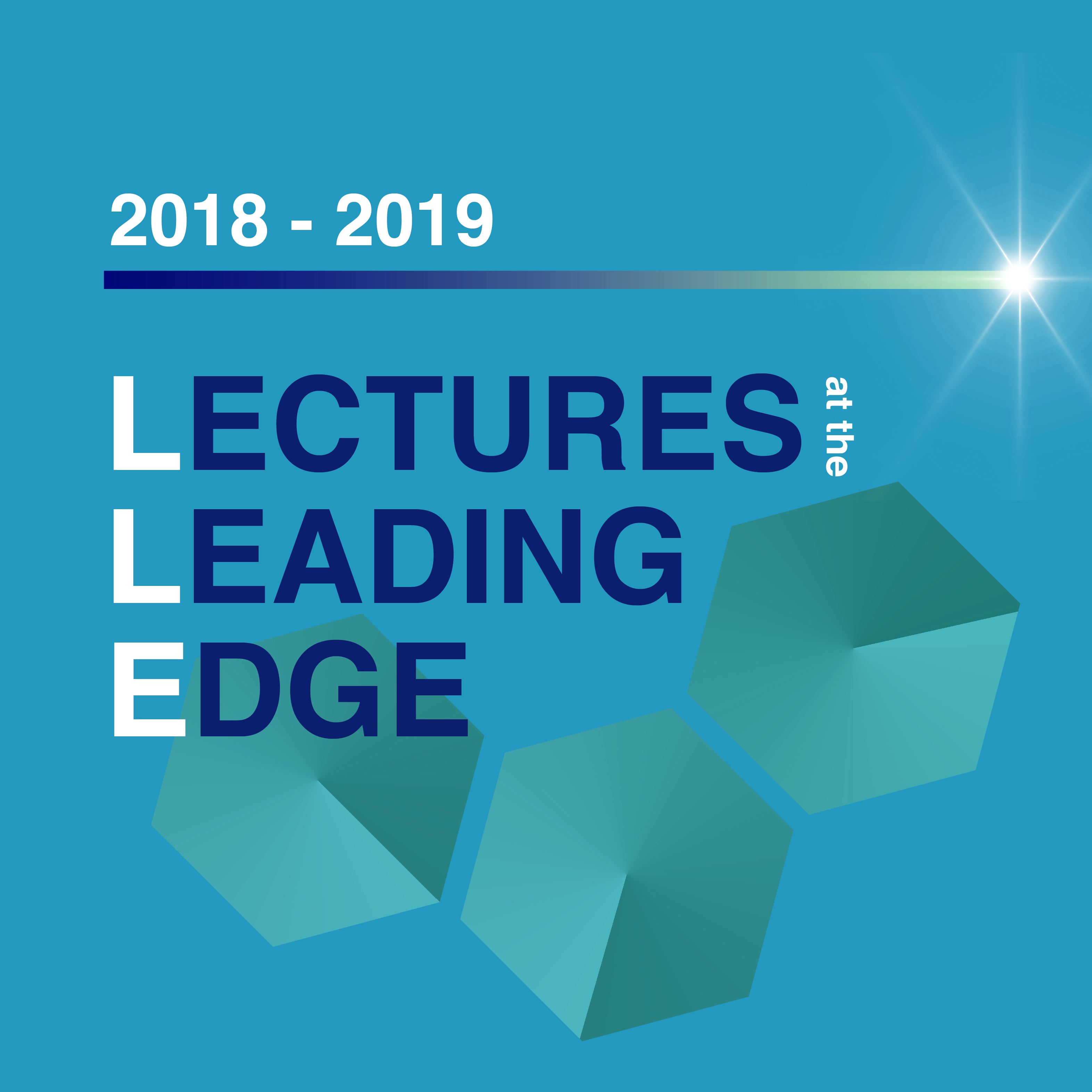
ANGELA BELCHER
Massachusetts Institute of Technology
Giving New Life to Materials for Energy, the Environment, and Medicine
Organisms have been making exquisite inorganic materials for over 500 million years. Although these materials have many desired physical properties such as strength, regularity, and environmentally benign processing, the types of materials that organisms have evolved to work with are limited. However, there are many properties of living systems that could be potentially harnessed by researchers to make advanced technologies that are smarter, more adaptable, and that are synthesized to be compatible with the environment. One approach to designing future technologies which have some of the properties that living organisms use so well, is to evolve organisms to work with a more diverse set of building blocks. The goal is to have a DNA sequence that codes for the synthesis and assembly of any inorganic material or device. We have been successful in using evolutionarily selected peptides to control physical properties of nanocrystals and subsequently use molecular recognition and self-assembly to design biological hybrid multidimensional materials. These materials could be designed to address many scientific and technological problems in electronics, environmental remediation, medicine, and energy applications. Currently we are using this technology to design new methods for building batteries, fuel cells, solar cells, carbon sequestration and storage, environmental remediation, catalysis, and medical diagnostics and imaging. This talk will address conditions under which organisms first evolved to make materials and scientific approaches to move beyond naturally evolved materials to genetically imprint advanced technologies with examples in lithium and sodium ion batteries, lithium-air batteries, environmental clean-up and ovarian cancer imaging and treatment.
______________________________________________________
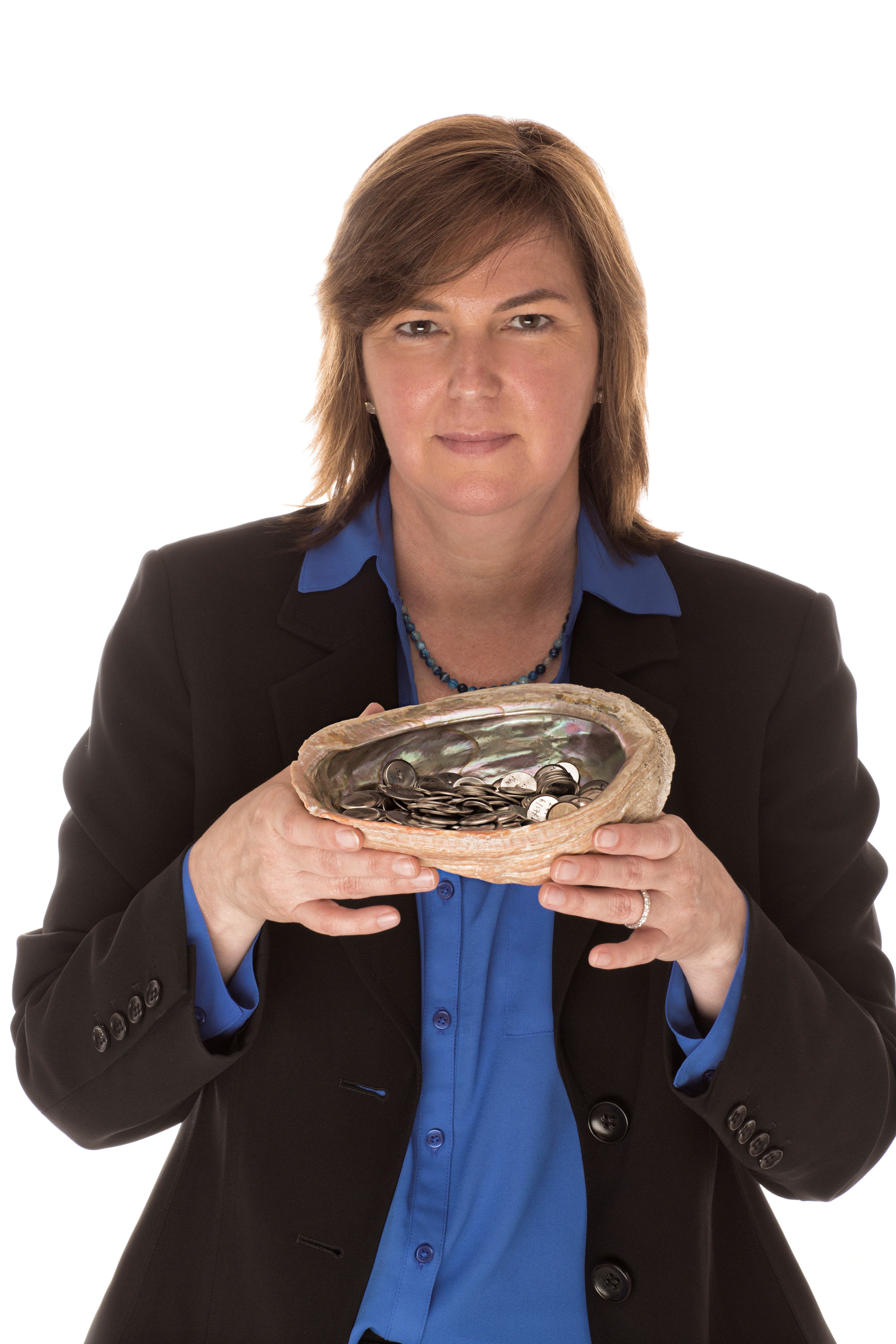
Angela Belcher is a biological and materials engineer with expertise in biomaterials, biomolecular materials, organic-inorganic interfaces and solid-state chemistry and devices. Her primary research focus is evolving new materials for energy, electronics, the environment, and medicine. She received her B.S. in Creative Studies from The University of California, Santa Barbara. She earned a Ph.D. in inorganic chemistry at UCSB. Following with her postdoctoral research in electrical engineering at UCSB. She now holds the James Mason Crafts Professor of Biological Engineering and Materials Engineering at MIT. She is faculty in the Department of Biological Engineering, Materials Science and Engineering and the Koch Institute of Integrative Cancer Research. She teaches undergraduate subjects in material sciences and engineering and biological engineering. In 2002, she founded the company Cambrios Technologies, Inc., and in 2007 she founded Siluria Technologies, Inc. Some recent awards include the 2013 $500,000 Lemelson-MIT Prize for her Inventions, 2010 Eni Prize for Renewable and Non-conventional Energy, in 2009 Rolling Stone Magazine listed her as one of the top 100 people changing the country. In 2007, Time Magazine named her a “Hero”- for her research related to Climate Change. In 2004, she received the Four Star General Recognition Award (US Army) for significant contribution to army transformation. In 2000, she was awarded the Presidential Early Career Award in Science and Engineering (PECASE). She was named Research Leader of the Year by Scientific American, and is a MacArthur Fellow, a Packard Fellow, a NAI (National Academy of Inventors) Fellow, an Alfred P. Sloan Fellow, a NAE (National Acedemy of Engineers) Fellow, and a member of American Academy of Arts and Sciences.
Download the lecture poster HERE
For more information on Lectures at the Leading Edge 2018-19 click HERE.
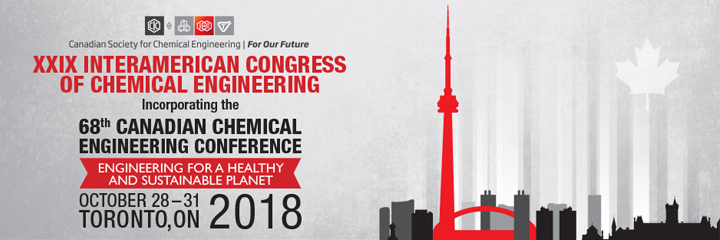
Welcome to the 29th Inter-American Congress of Chemical Engineering incorporating the 68th Canadian Chemical Engineering Conference, to be held in Toronto, Ontario, October 28-31, 2018. This international event is co-organized by the University of Toronto, Ryerson University and the Canadian Society for Chemical Engineering. Over 80 professionals from academia, industry, and government within Canada and abroad support the organizing committee. We anticipate up to 1,500 delegates from over 40 countries will attend the conference.
With the theme – “Engineering for a Healthy and Sustainable Planet”, the conference aims to address the big challenges that the world is facing in the area of human health, sustainable energy, natural resources, globalization and the environment. Central to the conference is the technical program that consists of over 1,000 oral and poster presentations, including five plenary lectures given by distinguished speakers, including the winners of the R.S. Jane Memorial Award, the J.S. Oldshue Award and the Montreal Medal. There are seven international symposia on topical subjects, with three to honor internationally renowned Canadian pioneers in lignocellulosic resources David Goring, environmental science Don Mackay and biomedical engineering Mike Sefton. Moreover, ten technical tracks are organized, reflecting the diversity of chemical engineering discipline and showcasing the advances in traditional and emerging chemical engineering fields. In addition, six special sessions are created, including one on “Modern Engineering Education” and two led by industry champions, on “Process Safety Management” and “Products and Processes for a Circular Economy”, respectively. Unique to this conference is the “Chemical Engineering Research in Latin America” – a session to be held in Portuguese/Spanish. The “Emerging Leaders Forum” will feature four early career researchers, recognizing their contributions, vision and leadership in their respective fields. A rich and wholesome student program is developed for both undergraduate and graduate students, consisting of eight events ranging from 3-minute pitch and Hatch plant design competitions to a workshop on early career publishing.

Co-hosted with CivMin, and Engineering Departments at Ryerson, and York
LUTGARDE RASKIN
University of Michigan
Can engineering controls shape the drinking water microbiome and reduce the risk of opportunistic infections?
Biological treatment processes and particularly biofiltration have gained tremendous popularity in the drinking water field over the past decade. However, we do not yet understand how biofiltration, disinfection, and transport of treated water through distribution systems and building plumbing influence tap water and human microbiomes. Most microbes in biofilters mediate positive impacts through removal of contaminants, but others have the potential to cause disease. In high-income countries, the risk of waterborne infection is often due to exposure to opportunistic pathogens, such as Legionella pneumophila and nontuberculous mycobacteria. This presentation will show that these microbes, present in source water microbiomes, are only partially removed and sometimes are selected for by current treatment practices and therefore become integrated in the diverse microbial communities in drinking water. Waterborne infections by these microbes mainly affect immunocompromised individuals, a rapidly expanding subset of the population, and result primarily from inhalation of aerosols. These findings call for an increased understanding of how drinking water aerosols impact our respiratory tract microbiomes. We have begun to address this challenge by focusing on cystic fibrosis, a condition known to predispose individuals to polymicrobial respiratory tract infection. The presentation will conclude by discussing steps water quality engineers and drinking water utilities can take to reduce risk of opportunistic infections while maintaining drinking water treatment objectives.
______________________________________________________
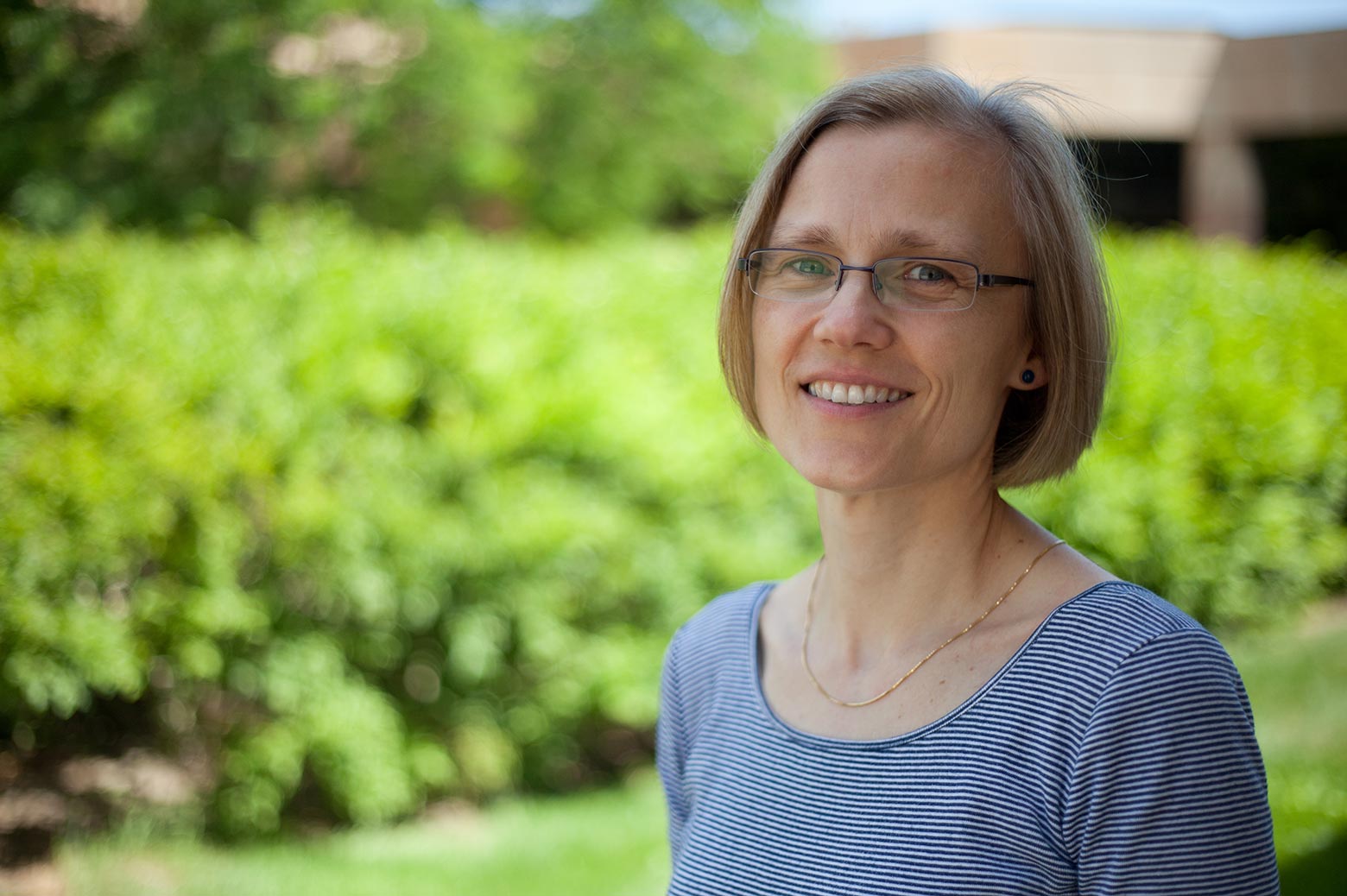 LUTGARDE RASKIN is the Altarum/ERIM Russell O’Neal Professor of Environmental Engineering and one of four faculty members of the University of Michigan Environmental Biotechnology group. She is inspired by the complexity of the microbial world and the astonishing progress we have made in the field of microbial ecology over the past few decades. This progress continuously motivates her to rethink engineered systems so we can better harness the power of microorganisms to treat water and recover resources from waste stream.
LUTGARDE RASKIN is the Altarum/ERIM Russell O’Neal Professor of Environmental Engineering and one of four faculty members of the University of Michigan Environmental Biotechnology group. She is inspired by the complexity of the microbial world and the astonishing progress we have made in the field of microbial ecology over the past few decades. This progress continuously motivates her to rethink engineered systems so we can better harness the power of microorganisms to treat water and recover resources from waste stream.
Lutgarde strives to understand and improve various aspects of the engineered water cycle microbiome to improve human health using sustainable design approaches. Her research places particular focus on (i) water and energy recovery from waste streams and energy crops, and (ii) drinking water systems including biofiltration, disinfection, distribution and premise plumbing.
Download the lecture poster HERE
For more information on Lectures at the Leading Edge 2018-19 click HERE.

 ALÁN ASPURU-GUZIK
ALÁN ASPURU-GUZIK
University of Toronto
Closed-loop Discovery of Materials: Robotics, Artificial Intelligence and Predictive Methods for the Design of Active Organic Materials
Arguably, the timeline from discovery to commercialization to scale up of novel materials is too long. The process of discovery is ridden with pitfalls that stop ideas and insights in the lab from being developed into new technologies. Given the accelerated degradation of our environment due to anthropogenic sources of atmospheric carbon, fast action is needed to tackle the challenges of the twenty-first century. In this talk, I argue that to increase our rate of discovery, we need to re-think the current laboratory setups and protocols. We should seek to build “self-driving” laboratories that by using closed-loop feedback of rapid synthesis and characterization steps help humans explore chemicals and materials space faster. Specifically, I will discuss the progress in my research group and collaborators in the use of artificial intelligence, automation and high-throughput screening for the accelerated discovery of organic materials in the fields of organic flow batteries and organic electronics. I am very interested in getting to meet my colleagues from Chemical Engineering and Applied Chemistry to foster potential collaborations as we seek to build our self-driving lab here in Toronto.
__________________________________________________
 ALÁN ASPURU-GUZIK is professor of Chemistry and Computer Science at the University of Toronto and Canada 150 Research Chair in Theoretical Chemistry. Alán was hired by Harvard University in 2006 and was promoted to Full Professor in 2013. He received his B.Sc. from the National Autonomous University of Mexico (UNAM) in 1999 and obtained a PhD from the University of California, Berkeley in 2004, where he was also a postdoctoral fellow from 2005-2006.
ALÁN ASPURU-GUZIK is professor of Chemistry and Computer Science at the University of Toronto and Canada 150 Research Chair in Theoretical Chemistry. Alán was hired by Harvard University in 2006 and was promoted to Full Professor in 2013. He received his B.Sc. from the National Autonomous University of Mexico (UNAM) in 1999 and obtained a PhD from the University of California, Berkeley in 2004, where he was also a postdoctoral fellow from 2005-2006.
Alán conducts research in the interfaces of quantum information, chemistry, machine learning and chemistry. He is a pioneer in the development of algorithms and experimental implementations of quantum computers and quantum simulators dedicated to chemical systems. He has studied the role of quantum coherence in the transfer of excitonic energy in photosynthetic complexes and has accelerated the discovery by calculating organic semiconductors, organic photovoltaic energy, organic batteries and organic light-emitting diodes. He has worked on molecular representations and generative models for the automatic learning of molecular properties. Currently, Alán is interested in automation and “autonomous” chemical laboratories.
Among his awards are the Google Focused Award for Quantum Computing, the Sloan Research Fellowship, and was he was selected as one of the best innovators under 35 by the MIT Technology Review. He is a member of the American Physical Society and an elected member of the American Association for the Advancement of Science (AAAS) and he received the Early Career Award in Theoretical Chemistry from the American Chemical Society.
Download the lecture poster HERE
For more information on Lectures at the Leading Edge 2018-19 click HERE
Learn how to design SAG and AG mill grinding circuits using only SAGDesign technology and test work. This method is the most accurate, fastest to complete, and lowest total cost of any design method available. This lecture will present details on the theory and application of the SAGDesign SAG test, the following Bond BM Wi test on SAG ground ore, and will include the calculation methods that allow any engineer to convert lab test work results and project design specifications, into the actual mill sizes with motors suitable to do the grinding work required.
____________________________________
John Starkey, P. Eng., BASc. in Mining Engineering, University of Toronto, 6T1
- 16 years in operations, Kam Kotia, ORF SAG Pilot Plant, Kidd Creek, INCO mills and mines
- 12 years in mill engineering design at Kilborn Limited in Toronto, 1977 – 1989
- 29 years as a Designated Consulting Engineer
- Invented and co-developed the SPI and SAGDesign tests for measuring ore hardness.
- Frequent lecturer at universites world wide teaching the fundamentals of SAG mill design.
It’s that time of the year again – Join BioZone for an afternoon of exciting student research presentations, 3MTs and poster sessions.
Get to know what labs in BioZone are doing. Pizza will be provided after the event for people who register on Eventbrite.